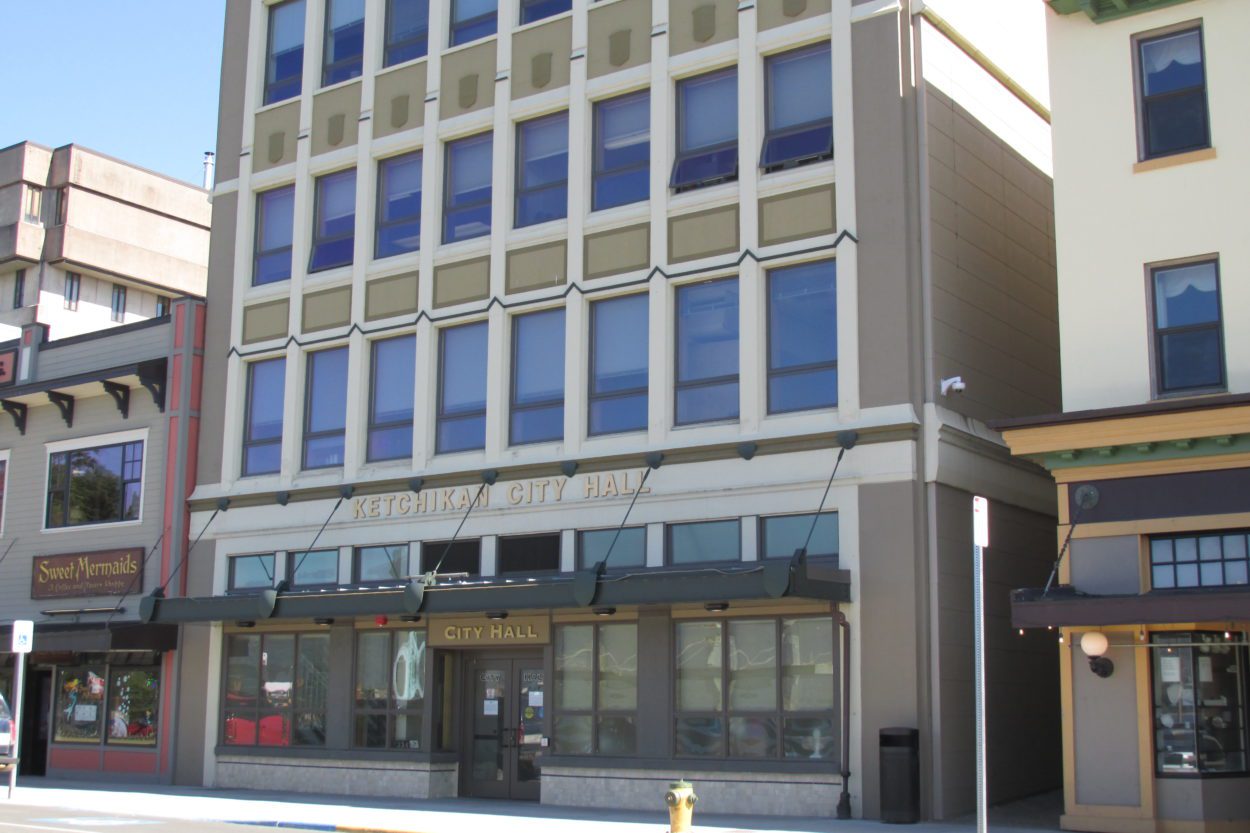
Ketchikan is holding off on changes to its port vendor program for now. Ketchikan’s City Council voted Thursday to postpone a proposal to dole out the city’s dock vendor leases in a lottery rather than the current sealed bid system.
Ketchikan’s port and harbors director, Darryl Verfaillie, said the sealed bid system prevents new businesses from having a chance to capitalize on publicly-owned infrastructure.
“We have people who’ve won the bid 20 years in a row — six and seven vendors only to fill six booths. And so that’s why we looked at an alternative,” he said.
And he accused some existing vendors of colluding with each other to ensure they’d prevail. In sealed bid auctions, vendors aren’t supposed to know what their competitors are bidding.
“I had a former leaseholder tell me that they couldn’t continue with their booth because they bid in that sealed bid (auction) with consulting another leaseholder when they put those bids in. So they colluded with those bids. So I know that for a fact, because I was told by a leaseholder, this season, that occurred. And so that’s why we said, ‘Well, maybe there’s a more transparent way for the public where we can assign these leases,’” he said.
Council member Riley Gass bristled at the suggestion.
“I don’t think that’s really appropriate to then make this assumption that well, these people who’ve been running their businesses down there are a bunch of colluders,” he said. “Even if that’s the case, I mean, you’re never going to have a perfect system. … This is a capitalist country. And if you submit the highest bid, you win.”
That was a common theme among the lottery system’s opponents: that the system doesn’t exclude small, up-and-coming businesses because anyone can submit a bid.
But council member Mark Flora said it’s difficult for startups to compete with more established businesses that have the cash to outbid them.
“Since the Port of Ketchikan is an asset owned by all of the residents, in the end, one of the things that’s important, at least from my seat, is an opportunity for as many people as possible to achieve success,” Flora said.
Other council members wanted more specifics before moving forward — how much the lottery-assigned booths would cost each month, and the terms of the lease, among other things.
Gass suggested simply raising the number of booths available.
“I don’t see why we don’t extend it from six tour booths to 10. I mean, it’s a pretty large port,” he said.
Council member Abby Bradberry commended city officials for thinking outside the box, but she said she couldn’t support a move to a lottery system just three months before the start of the tourism season. She suggested reworking the rules for existing vendors to allow them to sell tours for companies who can’t afford their own booths.
“I think the intention behind why we need to revamp this, I totally agree. We need to figure out how to make it easy for those little guys or those one-offs that just have — like Out to Sea Expeditions, they just have one tour. I bet they would love for somebody to fill their empty seats on the dock, but they might not be able to afford the $30,000 (cost of a seasonal lease),” she said.
After failing to secure enough votes to kill the measure outright, Bradberry suggested punting the lottery proposal until late September to allow time to gather input from tourism businesses and the public. That passed 5-2 with Gass and council member Lallette Kistler opposed.





